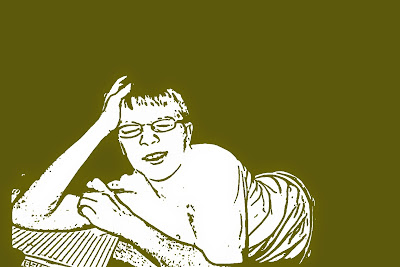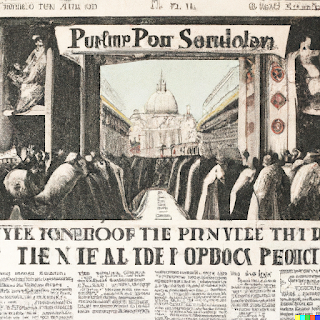A Review of Gerald Bonner on Augustine and Pelagius
Gerald Bonner has written extensively on the Pelagian Controversy in books and scholarly articles. Two chapters of his book on Augustine are dedicated to the Pelagian controversy. He also has two later articles on the subject in Augustinian Studies, “Pelagianism and Augustine,” a two-part series. Also, his article “Rufinus of Syria and African Pelagianism” in the same journal is worth reading. In these writings, Bonner writes on the origins of Pelagianism, not as a negative force in the church but rather as a positive movement that had intentions of building up, not destroying. Bonner’s thesis is that if we begin from this positive point of view then, in the end, we can see if there are negative attributes of Pelagianism.[1] It is a certain methodology Bonner follows: to start from “seeing what is right” about the Pelagians to a conclusion about what may be wrong about their positions; how they themselves would have looked at their movement, from the inside out, not outside in.[2]
The problem is that we view Pelagianism through the lens of Augustine which distorts what Pelagianism actually stood for. Looking back at a centuries-old problem, we can fail to see the man who began it all, Pelagius himself. What did Pelagius actually say and what has been merely been attributed to him? This is the task of the historian, to be as objective as she can be in the presentation of the facts, to steer clear from any biased retelling of history as far as possible and to sometimes relook history from the lens of another key figure. In this case, let us look at the Pelagian controversy through Pelagius’ eyes rather than Augustine. Of course, this task is never perfect; for, even the historian, merely reporting the story, informs history from their own vantage point, not only personal vantage point but the perspective of her time in history, the culture the historian writes from and the intent of the article. Bonner is suggesting that history has been in favor of Augustine; so, do we get any new insights taking a retrospective look in the shoes of Pelagius?
The Life of Pelagius
From 408 - 431 are the years of Pelagianism, but it must be remembered that Pelagianism was not like other theological movements that found disfavor in the church because it was a local phenomenon and not systemic to the entire church at the time. It basically sprung up in Rome, northern Africa and other pockets of Europe where Pelagius’ followers traveled.[3] Bonner calls the modern retelling of Pelagianism “the demolition of what may be called the monolithic view of Pelagianism”.[4] Nascent Pelagianism was not as grand a scheme as people make it out to be. Really, it is Augustine who brought the teachings of Pelagius into more universal awareness. If it were not for Augustine’s extensive writings against Pelagius we probably would not know about it, but because Augustine spoke out against it so vehemently it has stood the test of time.[5]
In 408 Pelagius first comes onto the stage in Rome. It arose first in aristocratic circles of women in Rome because Pelagius was a spiritual advisor to many women there. Demetrias, the daughter of Anicia Faltonia Proba. Melania the Younger. All devout women of high rank -- like Jerome before him Pelagius courted single, young women of the bourgeoisie.[6] About 410, around the same time as the Donatist movement (which is closely related to Pelagianism, sometimes confused with one another) is when Augustine began to preach against Pelagius. Actually, in 415 The synod at Diospolis declared the writings of Pelagius to be orthodox but in 417 Pelagius was condemned in Rome. The final stake in the Pelagian coffin was in 418 at the Council of Carthage, with over two hundred bishops under Augustine's leadership, Pope Zosimus pronounced Pelagianism heretical.[7]
Pelagius was a monk (although it is not quite clear whether he really was a monk or not) from the present day British Isles and came to Rome where most of his influence was felt; he was well-educated with “a profound knowledge of the bible” so he attracted the higher echelon of female society in Rome.[8] He was probably born in the latter half of the of the fourth century. He is different from other infamous dissidents in that there are no scandalous accounts attributed to his name, no grisly tales, and lecherous behavior: He did not die a horrible death, nor was he accused of licentious behavior with the young.[9] Even Augustine, at one time, attested to his character.[10] Probably Pelagius was not searching for glory and fame; he was not a rabble-rouser dissident but actually a quiet man who tried to stay out of the public eye as much as he could and avoided publicity.[11] Augustine was quite pastoral in his letters to Pelagius which were later used to conclude falsely that Augustine was favorable to Pelagius’ cause.[12] It is good to note here that Pelagius himself was probably closer to the truth (to orthodoxy) than the followers who took up his name. The third council of Ephesus condemned Caelestius, not Pelagius, who was considered apart of the Pelagian party (but to call the Pelagians a party is misleading because there is no evidence to support that they represented a strongly connected band).[13] Maybe in the eyes of Augustine, but in reality, the movement was much more provincial than widespread. Sometimes we tout certain ideas as from Pelagius but when really they are words from his admirers, like Caelstius and Rufinus.[14]
Actually, this is true of many movements in the church. Jansens is less Jansenistic than Jansenists. Luther was less a Lutheran than the Lutherans. Pelagius himself did not deny the need for grace nor did he dismiss baptism as essential.[15]
Actually, this is true of many movements in the church. Jansens is less Jansenistic than Jansenists. Luther was less a Lutheran than the Lutherans. Pelagius himself did not deny the need for grace nor did he dismiss baptism as essential.[15]






